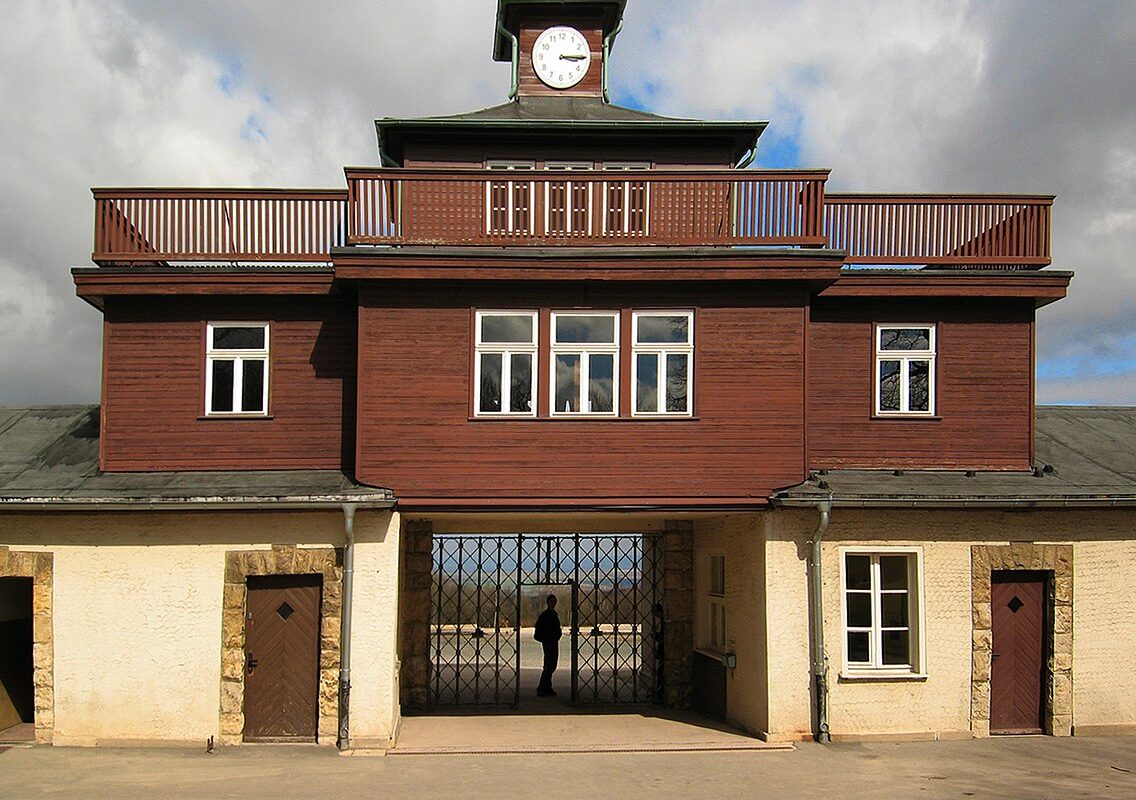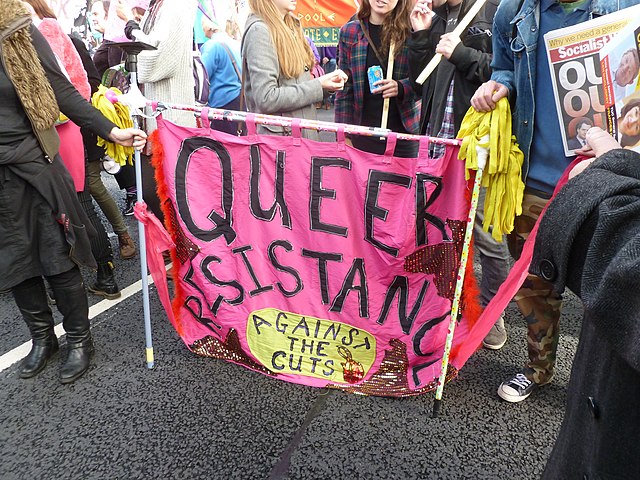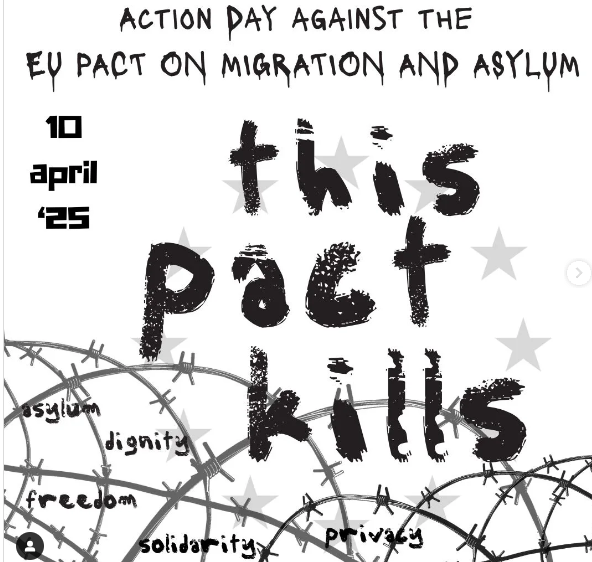In Part I and Part II of this series, we took a look at the Volksverhetzung and Beleidigung laws, two of the laws most weaponized to repress the anti-genocide movement in Germany. Acting as the root of both these laws we found something rather peculiar: German honor, or Ehre. And it only gets stranger the deeper we look.
In the search to discover more about this peculiar notion of honor, I stumbled upon another German law that was created to protect Ehre: the second of the Nuremberg Race Laws was titled “Law for the Protection of German Blood and German Honor.” This law included prohibitions of Aryan and Jewish intermarriage and sexual relations, employment of young German women by Jewish men, and Jewish people flying the Reich’s flag. It seems that simply being non-Aryan in Germany violates the German Honor Code. And one must be willing to defend even the slightest violation of honor with murder.
Perhaps the Holocaust itself can be seen through the lens of protection of Ehre. In exploring the German duel, I came across Ehrennotwehr, which, perhaps, could have been an undercurrent of the Nazi genocide. Ehrennotwehr, emergency self-defence of honor, was the vicious practice of 19th century Prussian officers; if one’s honor was somehow insulted by a lower class, who was not worthy of the honorable duel, Ehrennotwehr required sudden and extreme violence, even murder, in order to defend one’s higher positionality, avoiding the sometimes lengthy bureaucratic measures of the duel, which usually required a formal invitation, mediation and witnesses.
Although Ehrennotwehr was technically “reserved for those occasions when the physical integrity of the officer had been violated by a member of the unwashed horde who could not render formal satisfaction [a duel] … liberal interpretations led to its indiscriminate use as an effectual method for teaching any upstart his place.” (McAleer 114) As with the duel, Ehrenotwehr illustrates the idea of achieving purity and protecting honor through the annihilation of the other, an ideology embraced by Prussia, the Nazis, and the modern German state today.
So what is this peculiar German honor, or Ehre, exactly? Where does it come from?
In the words of scholar Kevin McAleer: “In the final analysis, [German] honor was devoid of clearly conceived ethical content” (48). Ehre seems to be rooted in codes of chivalry practiced by Crusading Knights. These honorable men conducted large scale massacres across Europe and the Middle East, including ethnic cleansing of Jews during the Rhineland Massacre.
In fact it was only through scapegoating and persecuting Jews that these Crusaders could fabricate honor: “The vices of the knights during the Crusades and their ‘extreme quarrelsomeness and pugnacity, merciless, arrogance and greed, cruelty to the vanquished, lack of a sense of common humanity, faithlessness to those outside the circles of feudal obligation, and frequently impious disregard of religion’ […] could only be transmitted as acts of heroic chivalry on the European mainland, if contrasted to Jewish vices.”
The imaginary Feindbild – the Jew, the Communist, the Palestinian – comes into play here; it is only through creating an imagined enemy that is so unfathomably and deeply dishonorable, one could claim any sort of honor while committing mass murder. This false narrative would have been critical in establishing the honorable nature and justification of the Crusaders’ ethnic cleansing of Jews in aforementioned Rhineland massacre, the genocide of Herero and Nama peoples in Namibia, the Holocaust, and the current German funded genocide in Palestine.
Germany’s own Crusading Knights, the honorable Teutonic Order, were founded in Palestine to “avenge the dishonoring of God and His Cross and to fight so that the Holy Land, which the infidels subjected to their rule, shall belong to the Christians” (Sterns, 204) They hoped to follow in the footsteps of their peculiar reimagining of the Jewish Maccabees as knights who, in the Order’s words, “defeated and exterminated [pagans] so that they cleansed once again the Holy City which the pagans had defiled” (Sterns, 204). After they failed to ethnically cleanse Palestine, they developed their code of honor while committing atrocious wars of extermination and enslavement in north eastern Europe, laying the genocidal path Hitler would later follow through the Eastern Front.
What’s more, the Teutonic Code of Honor even includes an early form of Beleidigung legislation: the first Book of the Order from 1264 states : “No brother shall call a Christian a traitor or a renegade or an evil smelling bastard, or abuse him in such terms.” (Sterns, 243). Remember this rule of protecting Christians from slander was conceived at a time when the Teutonic Order, “who for love of honor and the fatherland have exterminated the enemies of the faith with a strong hand” (Sterns, 204). The Order was legislating against verbally insulting Christians while literally attempting ethnic cleansing.
Teutonic Ehre only took on greater heights as time went on. It was so highly esteemed in Germany that both the 2nd Reich (Kaiser Wilhelm II’s Kingdom of Prussia) and the Nazis adopted it:
“By decree of its leader Heinrich Himmler[…], every SS man had ‘the right and duty to defend his honor by force of arms,’ and in a letter to the SS Legal Service in 1938 he outlined the conventional Wilhelmine guidelines for doing so. What is more, Himmler patterned his own cult of honor, like that of his Wilhelmine predecessors, on medieval archetypes. He modeled his ‘new knighthood,’ his ‘sworn liege men,’ on the ‘brutalized chivalry’ of the Teutonic Knights” (McAleer 210)
But Teutonic Honor didn’t end with the Nazis: the modern Bundeswehr (German Military) gives out a “Badge of Honor” with the Teutonic Order’s Iron Cross. Antisemitism commissioner Uwe Becker is also a lay member of the order, and one must wonder about the role of Ehre in the “war on antisemitism.”
The German conception of honor has an interesting distinction from other honor codes: it is guided by Standesehre, caste honor (McAleer 35), defined as the collective honor of Germany’s elite class; “Its definition also denoted group solidarity over and against the lower orders, for in every ‘affair,’ or Ehrenhandel, the participants were representing not only their own interests but those of their class.” (McAleer 3)
For elite men, individual honor and caste honor were therefore indistinguishable (McAleer 35). Therefore, the German notion of Ehre is primarily concerned with hierarchies of power — one can only be honorable if one is above those who are not. We could see clearly how this is also tied into the Christian Crusaders’ ethno-religious honor above Jews, and this honor could have evolved into the honor of the Aryan race over all others.
The other nefarious element of German honor is its entanglement with the duel. It was the duel itself, that is murderous violence, which distinguished and guaranteed honorable positionality:
“The duel drew a strict line of division between “men of honor” (Ehrenmänner) and the rest of society, which enjoyed none of the psychic, social, or legal entitlements of honorable status. Among German males, in order to be considered salonfähig—fit for good society—it was necessary that one also be satisfaktionsfähig— capable of dispensing satisfaction in a duel. Highly dangerous rencontres endowed this term with the real substance of character, and so upper class men of honor also pretended a moral supremacy that bolstered their claim to leadership of the German nation” (McAleer 3-4).
One’s ability to duel determined one’s class and power, and it is through the duel that one could uphold one’s class and power positions. During the end of the 19th century and early 20th century, this was strictly limited to elite white Protestant men who made up about 5% of the population. (McAleer 35).
These elite German males seemed to be so fearful of being insulted and lose their honor that Professor Karl Binding stated that “the eternal Angst of the German that his honor might be robbed of him by any frivolous fellow, his trembling worry that perhaps already through an upturned nose or a derisive word his whole world has gone up in smoke.”
Binding even came up with the diagnosis “Ehren-nervosität” — a “chronic nervous affliction of the [upper class], usually characterized by acute and persistent hallucinations that someone was trying to trespass their personal integrity by belittling them.” (McAleer 40). I think many of us have met people on the streets and subways of Berlin, often in uniform, who have this condition.
As a man of honor, it was seen as infinitely worse to quietly take an insult rather than lose one’s life in a petty pistol duel over a small insult against you or a female acquaintance. As McAleer explains, “This was the greatest infamy in a world where the essence of manhood was affectation of a serene scorn for one’s own puny existence. […] It was and is better to die/kill rather than be seen as a weak insulted person.”(McAleer 42) Given this commitment to murder and death, we can further understand the system of “ethics” which is the bedrock of German culture itself.
Through exploring this strange German Ehre, perhaps we can see another aspect of Germany’s support of Israel. It may be a long shot, but bear with me. As we learned from evaluation of Volksverhetzung law, human rights in Germany entails applying German notions of “human dignity” or honor to certain populations or persons. These populations, therefore, must also fall into a strict and violent hierarchical code as well.
Through the lens of German Ehre, the Palestinian people insulted Israel through the October 7 attacks and as the German political elite and mainstream media seems to be unable to distinguish between Israel and Jewish people, Palestine therefore insulted Jews as a whole. Since Jewish people are awarded “human dignity” in modern Germany, so we are told, Jews are therefore required to defend their honor. As the German state and mainstream media, through horrific anti-Palestinian racism and persecution, has implied that Palestinians, as non-Aryan Arabic people, occupy a lower racial positionality compared to white Ashkenazi Jews, Ehrenotwehr, honorable self-defense, or extermination, is an order. It must be quick, extreme, brutal, and absolute.
As the Nuremberg Laws imply, genocide is the way a country defends honor against ‘inferior races’, and it is actually a requirement to uphold the honor of the ethno-nationstate. We should also note that Theodor Herzl, one of the founders of Zionism, valued Ehre enough to suggest that the duel might help the social position of European Jews (Schorske 160). Furthermore, Suad Hanine Shatou-Shehadeh, in her Doctoral Thesis from Columbia University, beautifully articulates in great detail how Honor is one of the fundamental bedrocks of the Zionist movement.
As was previously revealed in the Teutonic Order’s Rule Book of 1264, we discovered that the German white christian elite have long dreamed of a vision of Jews as being honorable through commiting genocide in Palestine; they had viewed the Maccabees as honorable Knights who “exterminated” pagans and “cleansed” the Holy Land (Sterns, 204). Now Zionism has begun to fulfill this vision, and the German ruling class is one of its most voracious supporters.
Because of their close ties, Germany’s honor is bound up in the honor of Israel (recall Israel is Germany’s Staatsräson). This means that Jews who refuse this challenge, who do not defend their Ehre, and oppose Zionism or simply Israeli state policies, are scorned with great hatred and resentment. They have thrown away their honor and insulted the honor of the German state, its Staatsehre one might say, by anointing them with that Ehre and “human dignity” in the first place. They are reduced to the dishonorable class and deserve punishment for insulting more honorable Jews and the German state as a whole
Moreover, given that the notion of “salonfähigkeit”, or being fit for good society, is dependant on one’s ability to support and participate in murderous violence against those who ‘insult’ your honor, we can further understand why only those people who support genocide against ‘dishonorables’ compose the German elite and ruling class.
And if, as Whitman suggested, honor was democratized to be a privilege and responsibility of all people in Germany (catalyzed through, if you recall, the Nazi expansion of Beleidigung to protect all Aryans), all people in Germany must also follow the German Ehre code, and can therefore only be fit for society when they actively support the extermination of ‘honor insulters’.
Through this three part series, we have therefore discovered that modern Germany not only has laws that are distinctly anti-democratic, but it also has created a legal, ethical, and societal framework to require its population to avidly support genocide and ethnic cleansing of those whos mere existence insults the honor of the state.
© Jason Oberman, all rights reserved, 2025
Works Cited
- McAleer, Kevin. Dueling: The Cult of Honor in Fin-De-Siecle Germany. Princeton University Press, 1994.
- Schorske, Carl E. Fin-De-Siècle Vienna: Politics and Culture. Vintage Books, 1981.
- Shatou-Shehadeh, Suad Hanine. The Zionist Quest for Honor: France and Jewish Zionist Ideology and Subjectivity. Ph.D. dissertation, Columbia University, 2021.
- Sterns, Indrikis. “The Statutes of the Teutonic Knights: A Study of Religious Chivalry“. Publicly Accessible Penn Dissertations. 1969.
Whitman, James Q. “Enforcing Civility and respect: Three societies” The Yale Law Journal, vol. 109, 2000, pp. 1279–1398, .




